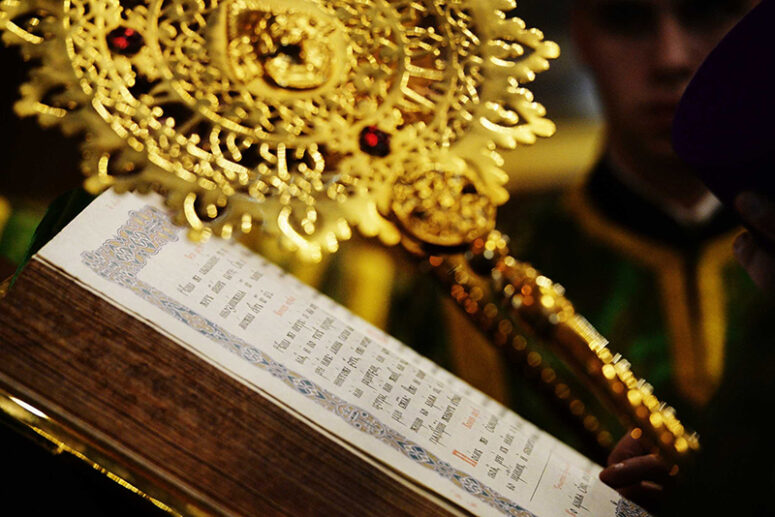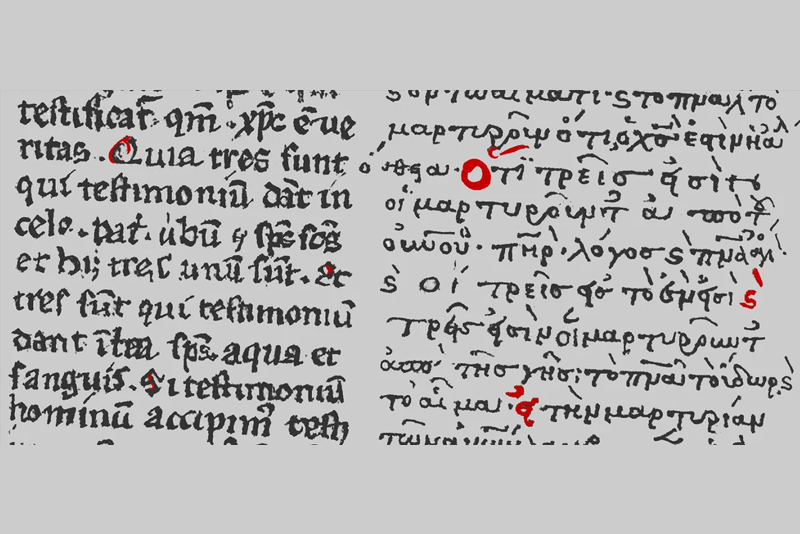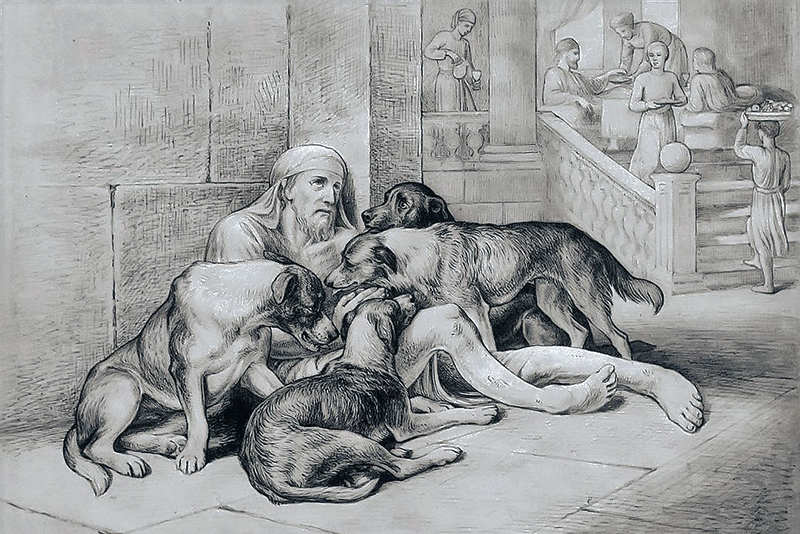
The possibility of a new book being added to the New Testament canon does exist theoretically, but it is highly unlikely for anything like this to ever happen in real terms. In theory however, a text, claiming to be called sacred, must meet three main criteria determined by the Church. Let us look into each of them in this article.
Conformity of Faith
All Scripture books align with one another in describing the Lord and His commandments, i.e. in what can be defined as biblical theology.
The early Christian writers call this principle of conformity with the faith of Holy Scripture “the rule of faith” (lat. regula fidei). According to Hieromartyr Irenaeus of Lyons, the foundation of the faith of the Church and the apostles consists in believing in one God, the Father Almighty, who made heaven and earth, the seas and all the things that are in them; and in one Christ Jesus, the Son of God, who was made flesh for our salvation; and in the Holy Spirit, who made known through the prophets the plan of salvation; and the coming, and the birth from a virgin, and the passion, and the resurrection from the dead, and the bodily ascension into heaven of the beloved Christ Jesus, our Lord, and his future coming from heaven in the glory of the Father “to gather up all things in him” (Ephesians 1:10) and to raise anew all flesh of the whole mankind.
In view of this, any book that claims to enter the canon must strictly correspond to the faith of the Bible, the Church and the apostles, and must not contain teachings alien to this faith.
Apostolic Origin
Books not written by the apostles cannot enter the canon. The ancient Church knew a number of writings (for example, the Didache or the Shepherd of Hermas) which, despite being well-regarded, were never included in the canon. The compiler of the canon Muratori (approx. 154-170) refuses to include the Shepherd of Hermas in the canon, because, according to his testimony, the book was quite recent and could be counted neither among the prophetic scriptures (since the number of the Old Testament prophets has been brought to fullness and “sealed” by the work of St John the Baptist), nor among the apostolic writings (since the apostles had long departed to the Lord).
It was thus quite natural for various sects, seeking to gain recognition of their ideas and to introduce them into the Church, to sign their writings not with their own names, but with the apostles’. However, the evidence of the apostolic origin of this or that text has been known to the Church through tradition. Even now, we can use the surviving works of early Christian writers to get a complete picture of which books have been recognized as canonical and attributed to the apostles. The third criterion for the canonicity of books stems from the above two.
General Church Acceptance
A canonical book must be recognized and used by the entire Church. It was quite probable for the ancient Christians to discover and spread for general church use an apostolic text whose authority could easily be confirmed, but in modern times this is hardly, if at all, possible. The earlier a book became known to Christians and the more Christians perceived it as authoritative, the easier its entry into the canon was. For example, despite the doubts arising in the West about the canonicity of the Epistle to the Hebrews and the similar doubts in the East about St John’s Apocalypse, Blessed Hieronymus of Stridon recognized both books, arguing that Christians of the apostolic times never doubted the canonicity of these texts, and neither did their contemporary church writers unequivocally recognizing them as authoritative.
Summing up the above: all the three criteria must be met, for which there is a completely rational justification.
If a text does not align with the biblical theology and the faith of the Church (1), or does not have a doctrinal character at all (2), then it cannot be included in the canon. Since God is the source of revelation, He cannot contradict himself, which is observed in all the books of Holy Scripture (1). And if the Church knew a text that was truly written by an apostle, but did not have a doctrinal character (for example if the Holy Apostles Peter and Paul were to write a fishing manual) the question arises, “What is the point of considering such a text sacred?”
If a text does not belong to an apostle (1) or is falsely signed with an apostle’s name (2), then it cannot be included in the canon, even if it does not contort the purity of faith and is revered by the Church. Only a text by an author who directly entered into communion with the Lord Jesus Christ or was otherwise involved in the events of the Gospel can be considered a part of the sacred text of the New Testament. In the light of this, the doctrinal texts of the holy fathers are considered part of the Holy Tradition and are revered by the Church (1). No deviation from the truth can be part of Divine Revelation, and this is a sufficient reason why pseudepigrapha cannot enter the canon. Besides, pseudepigrapha often appeared with the sole purpose of spreading ideas alien to the Church (2).
Ultimately, it is the Church that has the right to determine whether a particular text can be considered sacred. Considering that we are living in the 21st century, and not in the apostolic times, even if a text containing orthodox teaching was found, and there were facts proving its apostolic origin, then the entire Church would have to make a conciliar decision whether such a text should enter the canon. And even if such a text appears, a number of questions would arise. First, why was this text not known to the ancient Christians? Second, if there was evidence of this text, but it did not survive (ref. Lost Books of the Bible? ), is it really the text known to the ancients? This is far from the full list of general questions, to which a number of problems can be added, depending on the content and origin of a particular text.
Returning to the original question, the short answer is: yes, the canon can change, but it is unlikely to change. We as Christians are called to believe in Divine Providence and understand that it is the Lord Who arranged everything this way, and not otherwise, for He has good advice and sound wisdom; and He has insight and strength (Proverbs 8:14).




